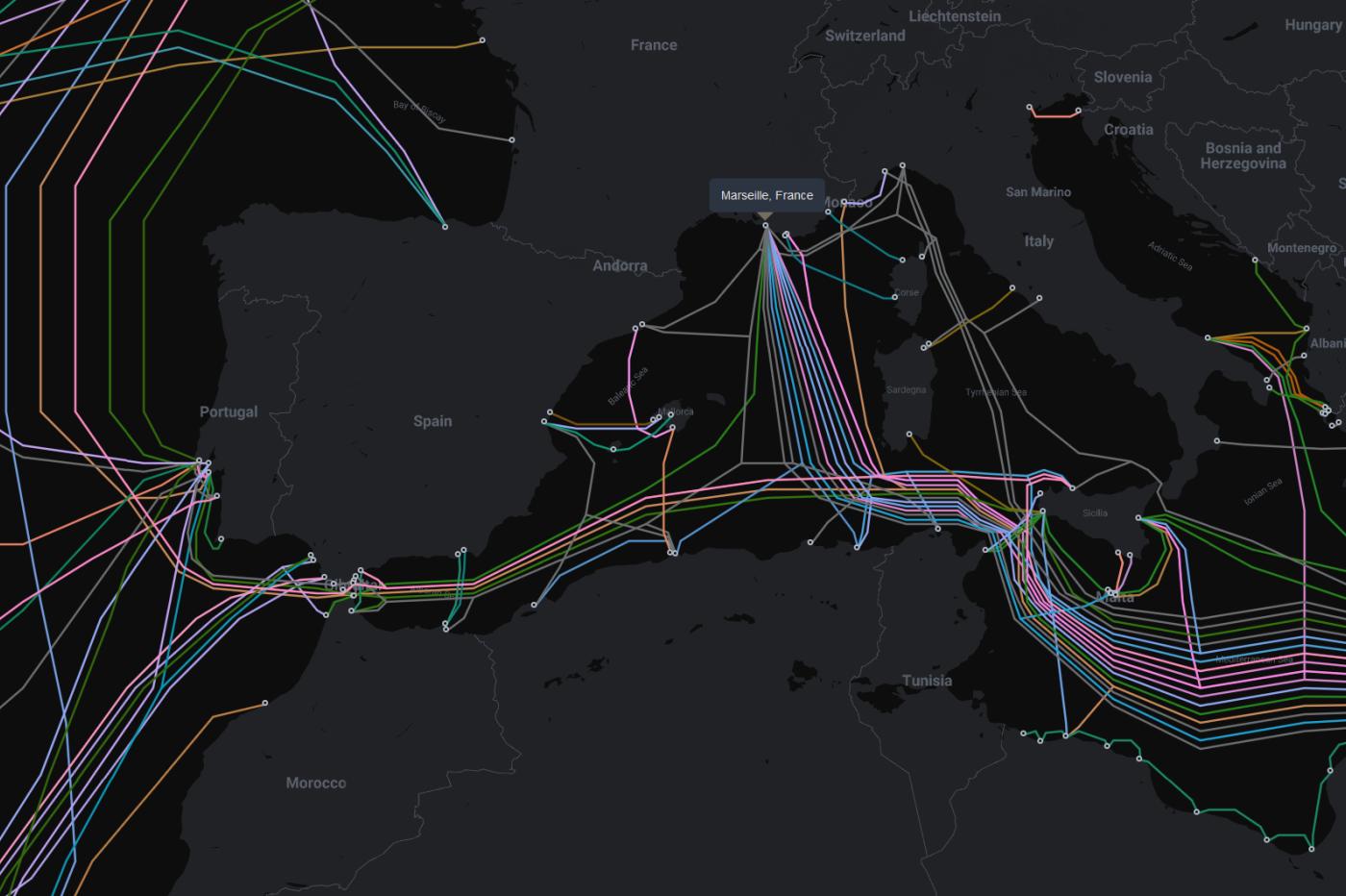Meta – the parent company of Facebook, Instagram and WhatsApp – seems about to launch an absolutely monumental project. According to TechCrunchthe company plans to install a huge underwater fiber optic cable of more than 40,000 kilometers for its exclusive use.
This project is apparently motivated by a simple observation: they alone, Meta’s various services represent a more than substantial share of global internet traffic — approximately 10% of fixed traffic and 22% of mobile traffic. And Mark Zuckerberg’s team apparently expects this figure to continue to increase, in a context where it is investing massively in artificial intelligence.
The group therefore decided to take the lead by building its own proprietary infrastructure, in order to avoid finding itself stuck in the future. The idea is not new; almost all the tech giants have already participated in the construction of cables of this type in order to offer themselves a certain margin of maneuver in terms of traffic.
This obviously concerns Google, which already has 6 huge submarine cables including one called Dunantbetween the United States and France. Microsoft, for its part, is one of the investors in the project the seawhich also connects North America to Europe. We can also cite Amazon as well as Asian giants like Alibaba or Tencent.
A gigantic private underwater network
But Meta’s new project still stands out for two reasons, starting with its size. According to sources close to the matter cited by TechCrunch. It would in fact involve building a giga-global cord which would connect the two coasts of the United States via the southern tip of Africa, India and Australia, thus covering a distance of approximately… 40 000 km.
This route would have been specifically chosen to avoid “zones of tension” such as the Red Sea and Egypt. A very important consideration, in a context where THE sabotage of these cables of enormous strategic and economic importance are becoming more and more frequent.
This cable would also avoid the largest global hubs like Marseille or Singapore. These are major hubs for global internet traffic that the firm prefers to avoid, as it considers them “major breaking points”. In the event of a critical incident in one of these hubs, a significant portion of global traffic would be severely impacted; but thanks to this approach, Meta’s services could continue to operate under these difficult conditions.

Always according to TechCrunchthe project is still in the preliminary stage. But its sources suggest that the company will undoubtedly officially reveal certain details of this pharaonic project as early as next year. If so, it will be interesting to look at the technical and geopolitical considerations of this XXL project, and to see if other tech giants will follow suit by building their own dedicated underwater meganetworks.
Source: www.journaldugeek.com


